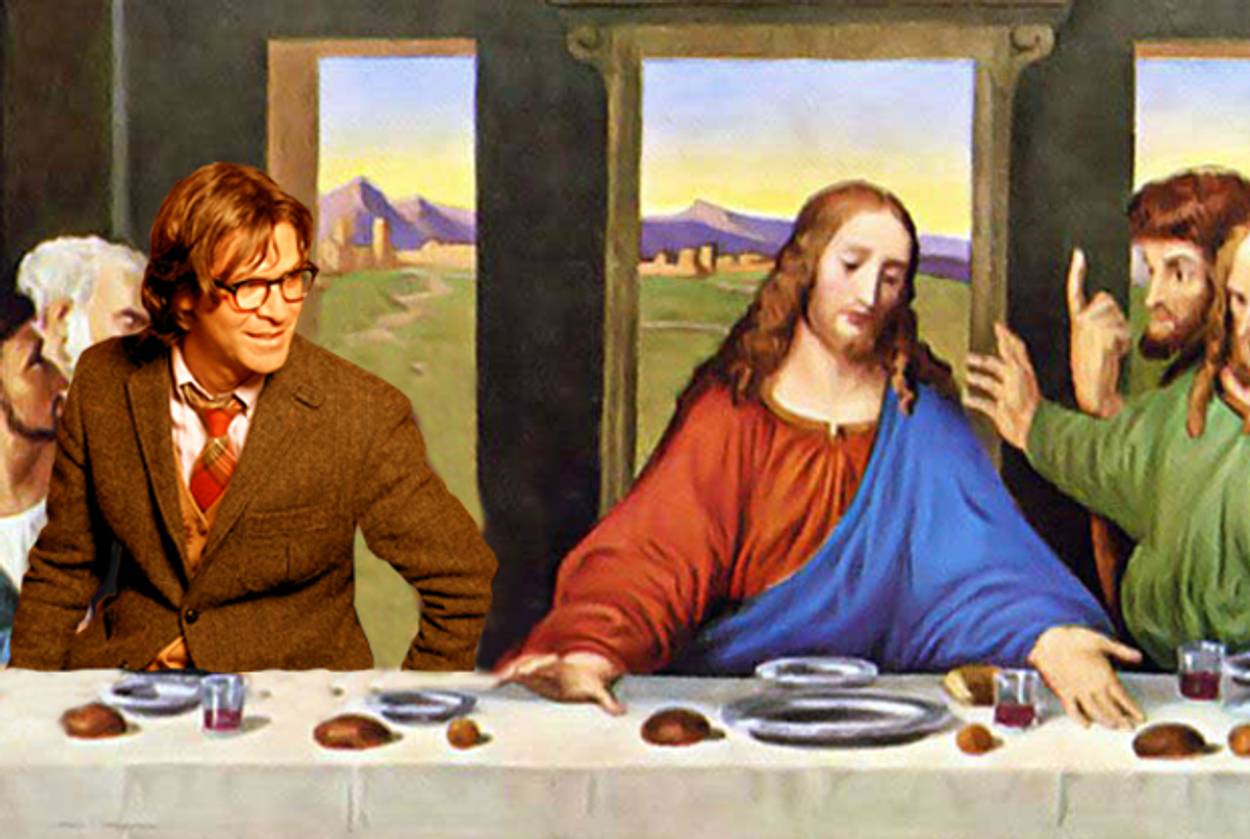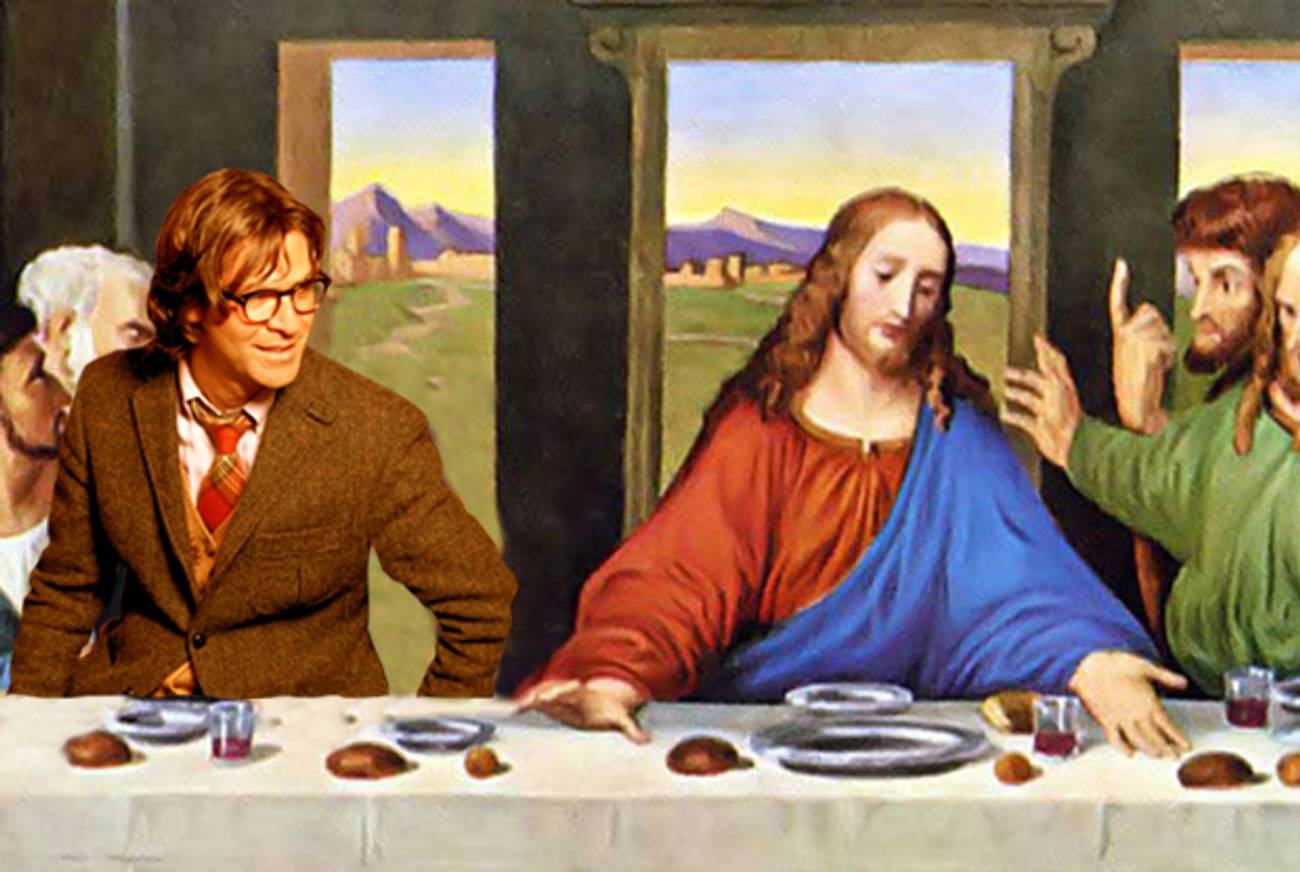How Would Jesus Rock?
Backed by music exec Jeff Ayeroff, composer Hillel Tigay tries to recreate the sounds of the ancient Temple




It was the album Hillel Tigay has been training his entire life to record. Not that he knew it: Growing up as the talented son of a prominent biblical scholar, Tigay rebelled in ways that seem sweetly familiar. He helped young men study for their bar mitzvah sermons, but dreamed of arenas dense with screaming fans; as soon as he could, he moved to Los Angeles, got a record deal, and began working as a musician. He put out a few albums, dabbled in pop and rock and hip-hop, and waited for L.A. to do what it did best and deliver one big, lucky break.
Not that Tigay thought about breaks when the phone call came from the synagogue. Despite his traditional upbringing, he was not one for weekly attendance. But the congregation on the other end of the line—Ikar, the celebrated progressive community led by Rabbi Sharon Brous—presented him with a challenge he couldn’t ignore. If you hate attending services, Brous told Tigay, how about coming up with a service you would love to attend?
“So, I started seeking out things that I liked,” Tigay told me by phone, “not just the usual Ashkenazi canon, but I also looked at Sephardic music, Arabic music, Sufi music. I started coming up with my own arrangements, and then composing my own stuff. The more I got into it, the more I could see the common thread, musically.”
That common thread could best be summed up, Tigay said, by a famous quote by Rabbi Nachman of Bratslav: “Even though it is a very old path, nevertheless it is completely new.” The music he loved best, he said, the music he found most inspiring and that felt the most Jewish to him, managed to sound simultaneously ancient and avant-garde. “I wanted people to listen to my music,” he said, “and ask, is this the sort of time-immemorial Jewish melody that’s been produced in a traditional way, or is it the opposite? I never wanted people to know for sure.”
Listen to ‘Hallelujah’:
[audio:https://www.tabletmag.com/wp-content/files_mf/02-Hallelujah.mp3]
The best way to produce this ambiguity, he found, was through simplicity. He started composing melodies that are deceptively unadorned, the sort of tunes that you could imagine being hummed in the Temple, millennia ago. Tigay imagined just that; the more immersed he became in liturgy, the more he wondered about the musical accompaniment Jewish religious life had had in biblical times. Fortunately for him, he had his father, Jeffrey Tigay, professor emeritus of Hebrew and Semitic languages and literatures in the University of Pennsylvania, at his disposal. After decades of pursuing pop, Tigay now wanted to know everything about his father’s scholarship: What musical instruments did the Israelites play? What did their worship sound like?
Each answer nudged Tigay closer to an epiphany. Music, he learned, was not performed in the Temple, at least not in the modern sense of performance. There was no audience present to hear it, just the Levites and the Cohens acting out their sacred duties. “It was an offering,” Tigay said, “an art offering, the clergy offering their art and their soul.”
He wanted to create something similar, something that would move listeners as a work of art but also transport them spiritually, enable them to imagine the kind of communion that words cannot describe. He recorded a few of his works but soon realized that his ambitions were on a far grander scale and involved demanding production values, which meant large budgets. Tigay doubted that anyone would get behind a project of outward-facing Jewish liturgical music, but he continued to play his compositions every week at Ikar.
Which is where Los Angeles came in. Among the congregants was legendary music executive Jeff Ayeroff, founder of Virgin America records, vice president of Warner Bros., discoverer of Fiona Apple, early champion of Madonna and the Police and a host of other luminaries. Ayeroff loved Tigay’s music, and, armed with the searing instinct for marketing that helped him make Paul Simon’s Graceland one of the most successful albums of the past century, put a neat spin on Tigay’s project. By trying to recreate ancient sounds, Ayeroff said, Tigay’s music was in fact answering an intriguing question: What did Jesus listen to? The music of the era, after all, would have been the soundtrack to the life of Christ, which made Tigay’s ideas appealing not only to Jews but to Christians as well.
Now, with Ayeroff’s backing, Tigay was free to recreate sounds. He courted musicians from all over the globe: Armenians, Iranians, and Turks gathered in the studio to play the exotic instruments particular to their tradition, the instruments that come closest to replicating the music of Jerusalem in the first years of the Common Era. Herb Alpert, another music industry titan, stopped by to play trumpet. The result was just what Tigay had in mind: Listen to it one way, and it recalls something Grandpa might’ve hummed on his way home from shul; listen again, and it’s all hyper-contemporary world music, a smooth texture of strange instruments weaved together seamlessly.
Listen to ‘Shema’:
[audio:https://www.tabletmag.com/wp-content/files_mf/05-Shema.mp3]
The album Judeo—sung in Hebrew and Aramaic—came out late last year. Tigay couldn’t be happier. “My ultimate aim,” he said, “was to do something that could be used in synagogues to revive Jewish life and spiritual life. The ultimate aim was to create a liturgy, something new that would take our generation to a new place. Most likely, right now, maybe during the high holidays, maybe at a wedding, you hear great music and get this great elation, but the rest of the time, no. But at a rock concert you feel this powerful thing, the music elevates you above the mundane. The album is an attempt to do the same thing in the context of a Jewish service.”
***
Like this article? Sign up for our Daily Digest to get Tablet Magazine’s new content in your inbox each morning.
Liel Leibovitz is a senior writer for Tablet Magazine and a host of the Unorthodox podcast.
Liel Leibovitz is editor-at-large for Tablet Magazine and a host of its weekly culture podcast Unorthodox and daily Talmud podcast Take One. He is the editor of Zionism: The Tablet Guide.